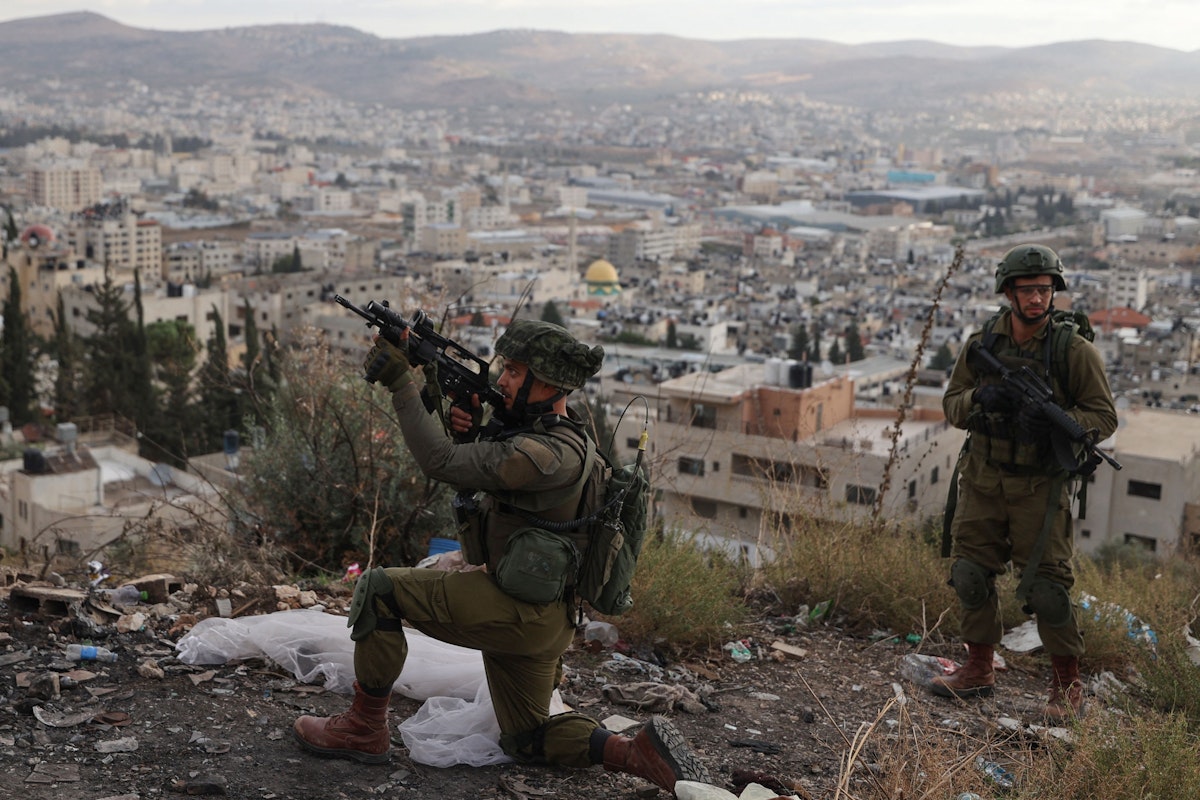
How to summarize nearly a century of Zionist and Palestinian bloodshed and peacekeeping—of industrialization and expulsion, the birth of a “rules-based international order,” war, occupation, the DotCom boom? Loewenstein begins with his own story: He grew up in a “liberal Zionist” community in Melbourne—his grandparents had fled the Nazis in 1939, arriving in Australia as refugees—but he grew uncomfortable with both “the explicit racism against Palestinians that I heard and knee-jerk support for all Israeli actions.” This discomfort led him to the Israel “beat,” so to speak, which he has covered, living in Israel on and off, for more than a decade. “It made sense to view Israel as a safe haven in case of future strife for the Jewish people,” he remembers thinking, but one man’s safety was another’s death knell.
“It’s either the civil rights in some country or Israel’s right to exist,” said Eli Pinko, the former head of Israel’s Defense Export Control Agency, in 2021. “I would like to see each of you face this dilemma and say: ‘No, we will champion human rights in the other country.’” Under this ethos, the Israeli economy quickly “abandoned oranges for hand grenades,” as one critic memorably quipped. After the Six-Day War in 1967, when the 19-year-old nation launched a preemptive strike on its neighbors—taking over the West Bank, Gaza, East Jerusalem, and the Golan Heights—a new era in Israeli politics began. The actions set the country, Loewenstein says, “on a military path that has never stopped,” though, to be fair, Israel wasn’t the only one. Just six years before, Dwight Eisenhower had warned of the dangers of an American military-industrial complex in his farewell address. It would be a mistake to consider that clunky term as merely representing a national problem. Instead, these two complexes, American and Israeli, developed interdependently within a broader system.
Arm in arm with them was South Africa. Some pundits bristle when critics compare modern Israel to the old apartheid state, arguing that the particulars are different. What’s undeniable, however, is that in the 1970s Israel cemented a military and security agreement with South Africa that endured secretly for decades. Anton Liel, the head of Israel’s foreign ministry desk in South Africa in the 1980s, wrote recently that Israel “created the South African Arms industry” and, in turn, South Africa helped finance Israel’s technology: “When we were developing things together we usually gave the know-how and they gave the money.” This partnership enabled Israel to develop its nuclear arsenal, Loewenstein says; it became the only country in the region with its own nuclear arms. (Despite pleas from nonproliferation groups, the US lets Turkey hold around 50 of its nukes, within spitting distance of Russia and Iran.)